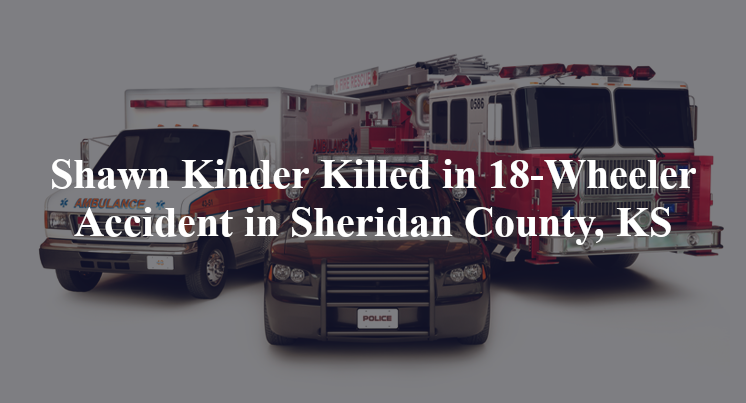Shawn Kinder Killed in 18-Wheeler Accident in Sheridan County, KS
Sheridan County, KS — March 26, 2025, One person was killed following a truck accident that occurred at around 3:00 P.M. on Kansas Highway 23.

Officials are investigating after an 18-wheeler accident left one person dead on the afternoon of March 26th. According to official statements, an 18-wheeler hauling an oil derrick was traveling on Kansas Highway 23 near US Highway 24 when the truck entered a side ditch in an attempt to make a wide turn, and in so doing the derrick made contact with an overhead power line.
When first responders arrived on the scene, they found that Kinder had been both electrocuted and ejected from truck, sustaining fatal injuries in the process and he was pronounced deceased. At this time there has been no further information released about the accident, however this remains an ongoing investigation and more details may be released in the future.
Commentary
Accidents involving contact with overhead power lines might sound unusual to most people, but from what I’ve seen in truck accident cases, these types of crashes usually involve problems that started well before the vehicle hit the road. When a commercial truck is hauling something as large as an oil derrick, there should be layers of planning and oversight in place to make sure the route is safe and the load can be transported without putting anyone in harm’s way.
The main concern in a case like this is whether the route was properly planned. Oversized loads require permits, and part of that permitting process includes mapping out a route that avoids low bridges, tight turns, and yes—overhead power lines. That’s not just best practice; it’s the law. If a load this tall came into contact with a power line, that raises serious questions about who planned the route and whether those hazards were accounted for.
Another area worth looking at is whether the right trailer was used, and if the load was positioned to keep its height as low as safely possible. Those details matter, especially when you're hauling something that pushes the limits of what the road can handle. Mistakes in that process can turn what should be a routine haul into a fatal situation.
Most commercial vehicles these days are also equipped with Electronic Control Modules, or ECMs, which can record things like the truck’s speed, gear shifts, and throttle activity. While an ECM can’t tell you if a power line was too low, it can help confirm how the truck was operating in the moments before the crash. That kind of data is often essential in understanding what happened.
From where I sit, the key question here isn’t whether a turn was too wide or the driver misjudged something. The bigger issue is whether the people and systems responsible for planning this haul took the necessary steps to prevent this exact kind of outcome. When that planning falls short, the consequences can be severe. That’s why it’s so important to look past the crash scene and figure out what really went wrong.

“These are essential reads for anyone dealing with the aftermath of a truck wreck”– Attorney Cory Carlson